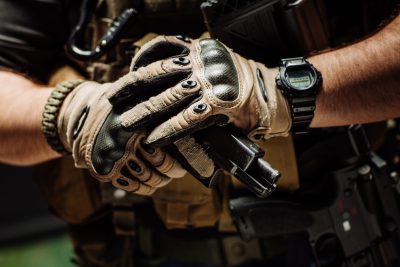
We are living in a particular moment where mainstream communicators want you to believe the world is in a state of permanent war—even when you are walking peacefully down your own street. Your phone relentlessly feeds you images of bombings. News channels and politicians constantly warn you of imminent danger.
This is how a military culture is built. And for over two decades, the military-industrial complex has done a remarkable job of embedding itself in our minds. We are led to believe the military exists to “defend” us and maintain “peace”—with Defense Ministries and UN Peacekeeping Forces masking their real operations. In the United States, every state is now integrated into this military machine, with arms factories that politicians proudly promote for being “good job creators.” Hollywood glorifies the military, routinely presenting soldiers as national heroes.
NATO recently “successfully” concluded its summit by securing a 5% GDP military spending commitment from each of its members.
Italy just passed a new law expanding police and military powers to suppress so-called “bad” protesters. In the U.S., Trump deployed the National Guard against demonstrations in Los Angeles and opened a new detention facility, nicknamed “Alligator Alcatraz,” specifically designed for migrants awaiting deportation.
The military culture is deeply rooted in politics. Many politicians openly support, engage with, or are themselves part of the military establishment. Religious institutions also lend their support to military formations, with clergy and followers actively serving. Education has been militarized, too—military recruiters visit schools, officers give lectures at universities, and scholars devote entire careers to detailing the minutiae of wars. In the US, the Department of Defense (DOD) and higher education institutions have a long-standing, symbiotic relationship, with the DOD funding significant academic research in areas like artificial intelligence, autonomous weapons, and advanced computing to address national security challenges.
The tech industry is fully engaged in military development, building AI-powered drones and surveillance systems. Scientific institutions developed the atomic bomb under the banner of “deterrence.” Cities deploy military-style police forces against their own populations. Even drug cartels have adopted military strategies for expansion, and some political movements maintain armed branches.
If you’re wondering how we ended up in the current catastrophe in Israel and Palestine, the answer is simple: Israel is a militarized society. Military service is compulsory—32 months for men and 24 months for women, followed by years of reserve duty. The military is not just a structure; it is the culture that shapes the entire state.
We celebrate these people as heroes who make the “ultimate sacrifice”—yet we rarely dedicate a day to honor teachers, nurses, doctors, or farmers.
There is a profound irony in the fact that governments today allocate virtually unlimited budgets to military spending, yet offer no comparable funding for the development of nonviolence. There are no grand investments, no national programs, no ministries dedicated to building peace, fostering reconciliation, or cultivating nonviolence in daily life. Contrast this with the European Renaissance—a cultural revolution generously funded by kings and rulers who, despite their own contradictions, invested heavily in the arts, science, and philosophy. They recognized, at least in part, the power of culture to shape civilization. Today, we pour trillions into perfecting weapons but invest almost nothing in creating the conditions for a nonviolent future. This absence is not accidental—it reflects the priorities of a system addicted to conflict.
Wars are not accidents. They are manufactured. They cannot be stopped simply by calling for peace. We must dismantle the war culture embedded in our towns, cities, families, and neighborhoods. Remove politicians who propose military solutions. Demand the closure of military bases. Transform military academies into schools of nonviolence and peace. Redirect tax money from military budgets to vital social services like housing, infrastructure, health, and education.
Wars are the metastasis of a global addiction to violence—a cultural cancer that we must confront and heal.
*
Click the share button below to email/forward this article. Follow us on Instagram and X and subscribe to our Telegram Channel. Feel free to repost Global Research articles with proper attribution.
This article was first published on Pressenza and translated into Spanish.
David Andersson is a writer and humanist based in New York City. He focuses on issues of global justice, collective consciousness, and nonviolent transformation. He co-directs Pressenza International Press Agency and is the author of The White-West: A Look in the Mirror, a collection of op-eds examining the dynamics of Western identity and its global impact. CounterPunch, denikreferendum.cz, Mobilized News, Countercurrents, LA Progressive, and Dissident Voice have published his recent work. Many of his articles have been translated into more than five languages.
Featured image is from Shutterstock/PRESSLAB
Global Research is a reader-funded media. We do not accept any funding from corporations or governments. Help us stay afloat. Click the image below to make a one-time or recurring donation.

Comment on Global Research Articles on our Facebook page
Become a Member of Global Research
Source link

